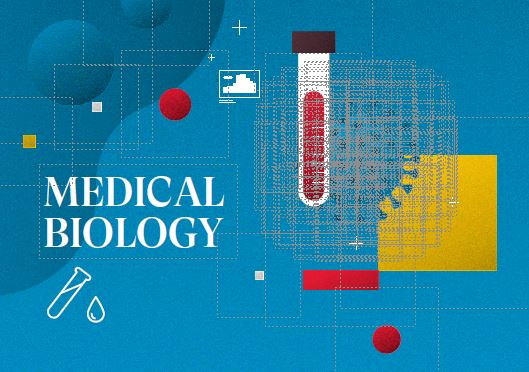- The Laboratory
- Organization
- Departments
- Jobs
- Analysis book
- Contact
- News
- Publications
- Download


![[Annual report 2020] NEW DEVELOPMENTS AND ADVANCES IN MEDICAL BIOLOGY](https://lns.lu/wp-content/uploads/2017/07/lns_bac_virologie_05.jpg)
While COVID-19 was naturally the focus of attention in 2020, the Medical Biology Department also saw several other advances during the year. The team was expanded, accreditations were obtained and new tests produced. It was certainly a year full of novelties.
| The department had many reasons to be pleased with itself. Regarding the team itself, a new biologist joined the existing team of two. Accreditation under the ISO15189 standard was extended and our first accreditation for separative methods coupled with an array of different detection techniques (spectrophotometric, fluorimetric, electrochemical and tandem mass spectrometry) was a success. “This recognition of our expertise in these advanced methods was eagerly awaited. It will now allow us to deploy them on all our panels,” explains Clément Kebbabi, a clinical biologist from the Medical Biology Department. |  |
New toxico-pharmacological tests were also put into production. The department took part in the DISCOVERY trial for the treatment of SARS-CoV2, which demonstrated the team’s responsiveness. It also started performing uracil assays to determine fluoropyrimidine toxicity, which makes it possible to rule out contraindication to chemotherapy treatment. “This test was previously performed abroad. Bringing it in-house it provides modularity and considerable time savings for the patient, among other things,” explains Clément Kebbabi, who adds: ”The department has also prepared the environment required for the future implementation of exchanges of results in a structured way (lab-to-lab) with our partners, the compilation of LOINC transcoding tables for all of the department’s parameters and the adjustment of our LIMS settings, for more efficiency.”
In 2021, the department plans to continue extending the panel of analyses for which the LNS is accredited by the Office Luxembourgeois d’Accréditation et de Surveillance (OLAS) and to expand the analyses available from the department with new panels. It will also accelerate the digitalisation of inter-laboratory exchanges, which has progressed significantly as a result of the COVID-19 health context. “What we have been able to do for COVID-19, in terms of internal and external collaboration and innovation, we will implement more widely.”
*****
Total adaptation to respond to the health emergency; a host of innovations; and close-knit teams that have discovered new professional and human skills: that is how one could sum what the Medical Biology Department has done its fight against the pandemic in 2020.
The year 2020 was a challenging one in terms of the innovations tested in the department. First of all, participation in the international DISCOVERY study was an exciting challenge for the team at the start of the pandemic. “With this study, which aimed to test treatments against the SARS-CoV-2 coronavirus, the team – which does not normally work on infectious diseases – had the opportunity to participate in the national effort to combat the infection. However, the drugs under study proved to be ineffective against COVID-19. The experiment therefore quickly came to an end for the LNS,” explains Dr pharm., Dr sc. Patricia Borde, Head of the Medical Biology Department. Similarly, the department immediately offered to work on the Roche COVID-19 antibody-assay kits and provide all the data to the Microbiology Department. The experiment was not continued as it was decided that these assays would be left to front-line laboratories in direct contact with the population, such as private and hospital laboratories, and not to specialised laboratories such as the LNS.
Alongside these interesting but short-lived experiments, one of the important achievements of the department in 2020 was to highlight the importance of Réception Centralisée, or centralised reception. At the beginning of the pandemic, the existing Microbiology team had become accustomed to handling the registration of COVID-19 samples, but this was quickly taken over by Medical Biology. The samples first came from nursing homes and their staff, then from the sampling/consultation centre on the Kirchberg, to which, as the year went on, were added those from the LNS’s drive-in test centre, from school testing, from the Ligue Médico-Sociale for very young children, and from a few other occasional missions in the hospitals.
With the support of the HR Service, Medical Biology recruited additional staff to cope with the influx of samples (+80%). Thanks to the IT Service, the way samples were encoded for this type of mission was improved, although human intervention remains crucial due to errors and incomplete data. “You have to be very reactive and available because you never know what the new requests and directives will be. The Réception Centralisée team has responded and invested a lot of time in these new tasks. Answering the phone and in some cases dealing with the stress and irritation of callers is a challenge in itself,” says Patricia Borde.
From the start of the health crisis, the department has done everything it can to manage staffing levels and protect its personnel, with teleworking obviously not being possible for the laboratory technicians. All these measures have been adjusted over time and as understanding of the disease improved. Motivation and team spirit did not waver in the department, which worked as a team every day. “We managed to maintain all our activities during the year 2020, and not a single patient received their results late. It wasn’t always easy, however, with split teams, external firms that couldn’t come in for maintenance or repairs, or team members who were ill, isolated or in quarantine,” says Patricia Borde.
In 2021, everything that had to be put on hold because of the COVID-19 emergency will gradually be allowed to resume, such as the work of the National Plan for Rare Diseases. New projects will also be able to take shape following the visit of the department’s Scientific Council at the end of 2020. Finally, LNS-wide projects should come to fruition. “The LNS has proven its key role in Luxembourg’s public health system, both in terms of developing cutting-edge technologies and on the front line with patients. Adaptation will be the key word in 2021 as it was in 2020.”
Download the LNS Annual Report 2020: https://lns.lu/publication/annual-report-2020/
